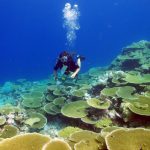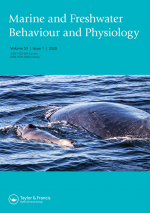Monitoring Coral Reefs in the Indian Ocean
Project Overview
Specifically, our research is extending the existing long-term assessments of coral reef growth, cover, recruitment and functionally extinct corals that have been monitored since 1978 and are of crucial importance to the ecological health of the reefs.
A video archive has been established to assess long term changes in the benthic community resulting from a warming ocean. The increase in ocean temperature results in more frequent disease and bleaching events which impair the health and reproductive capacity of corals and often leads to death of coral. These events cause significant changes in coral community structure and reduces the reefs’ ability to prevent shoreline erosion. Impacts of increased sea temperature can also be observed in species of connected ecosystems. To understand coral resilience to climate change, we are investigating the innate immune response of corals, and integrating long-term sea surface temperature trends into coral reef resilience models. Additionally, the coral reefs of the Chagos Archipelago vary considerably in their aspect, topography and hydrography due to the structure of the different atolls, banks, sea mounts and islands. These factors impact the benthic community and reef resilience and so we are also studying how internal wave-driven upwelling affects the shallow reefs’ resilience to bleaching. These studies will enable us to better understand why some corals are more resilient to bleaching than others.
Coral condition is one of the leading guides to the future condition and trajectory of the Chagos Archipelago marine environment in our warming world. The Chagos Archipelago is an important ocean observatory due to its remote location which shelters it from direct human impact. The area acts as a benchmark against which other reefs can be assessed and demonstrates how undisturbed reefs function and respond to climate change, pollution and over-exploitation. This helps to demonstrate the value of the Chagos Archipelago MPA and can inform effective improvements in the management of degraded coral reefs in the Indian Ocean and beyond.
The resilience of coral reefs in the Chagos Archipelago to rising sea temperatures has been remarkable. But as the warming events become more severe and more frequent will they keep recovering?
Key Facts
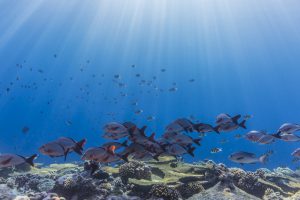
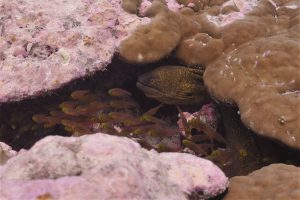
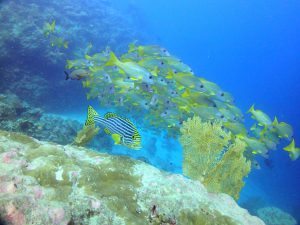
Publications

Depth Variation in Benthic Community Response to Repeated Marine Heatwaves on Remote Central Indian Ocean Reefs
Sanassy Pilly, S., Roche, R.C., Richardson, L.E., Turner, J.R. (2024). Depth variation in benthic community response to repeated marine heatwaves on remote Central Indian Ocean reefs. Royal Society Open Science.
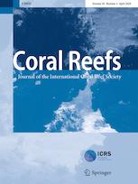
Quantifying Endolithic Bioerosion Rates on Remote Coral Reefs in the Central Indian Ocean
Lloyd Newman, J.E., Perry, C.T., Lange, I.D. (2023). Quantifying endolithic bioerosion rates on remote coral reefs in the Central Indian Ocean. Coral Reefs.

Quantifying Reef-Derived Sediment Generation: Introducing the SedBudget Methodology to Support Tropical Coastline and Island Vulnerability Studies
Perry, C., Lange, I.D., Stuhr, M. (2023). Quantifying reef-derived sediment generation: Introducing the SedBudget methodology to support tropical coastline and island vulnerability studies. Cambridge Prisms: Coastal Futures.

Mushroom to Manoeuvre? Using Photogrammetry to Track the Movement and Survival of Free-Living Corals
Bayley, D.T.I., Mogg, A.O.M. (2022). Mushroom to manoeuvre? Using photogrammetry to track the movement and survival of free-living corals. Coral Reefs.

Conclusions of Low Extinction Risk for Most Species of Reef-Building Corals are Premature
Muir, P.R., Obura, D.O., Hoeksema, B.W., Sheppard, C., Pichon, M., Richards, Z.T. (2022). Conclusions of low extinction risk for most species of reef-building corals are premature. Nature Ecology & Evolution.







